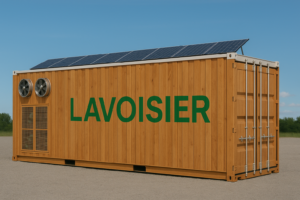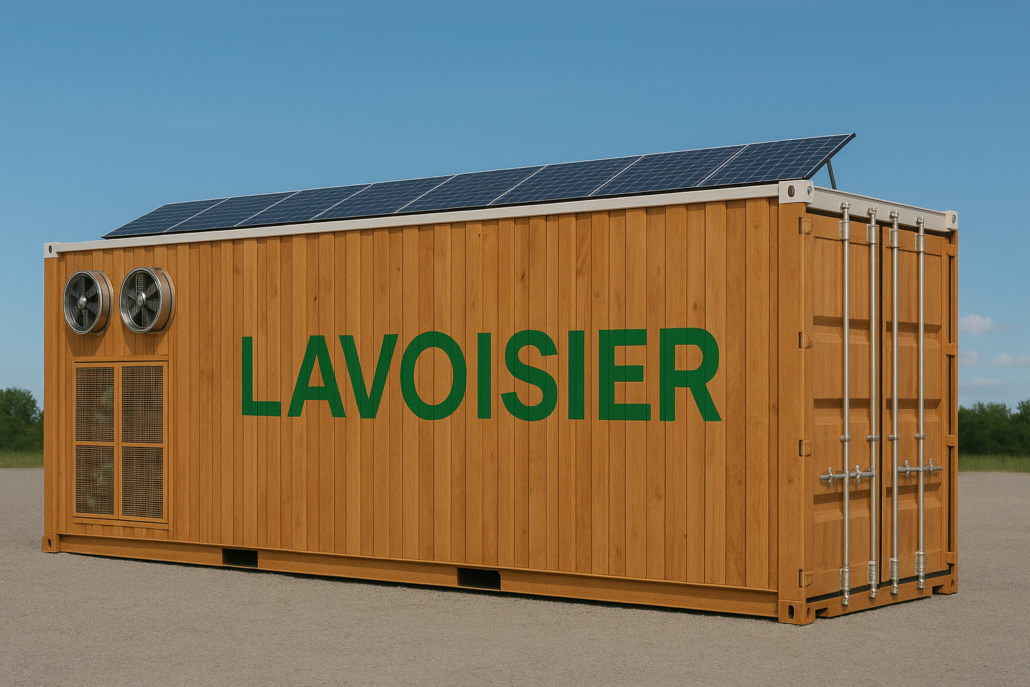Lavoisier
// PROJECT
Lavoisier is a fully autonomous container system that captures CO₂ from the air, electrolyzes water to extract hydrogen, synthesizes methane, purifies air, and produces drinking water and electricity, all with no external energy or resource input — offering a self-sustaining solution for clean water, climate mitigation, and off-grid energy.

Lavoisier - Tout se transforme. Même l’avenir.
Lavoisier — Closing the Loop of Energy, Air, and Water
Lavoisier is a fully autonomous 40-foot container that recreates a complete ecosystem of energy and sustainability.
It captures CO₂ directly from the atmosphere, extracts hydrogen from water, and synthesizes methane — a storable, usable green fuel.
Powered entirely by its own solar panels and internal energy cycle, Lavoisier produces electricity, purifies air, and generates potable water — without any external input.
Designed as a modular, deployable micro-factory, it can operate in any environment — from industrial zones to remote regions — transforming waste and air into clean power and resources.
One container. Zero emissions. Infinite autonomy.
Lavoisier — “Tout se transforme, même l’avenir”
1. CO₂ Capture
-
Air is pulled in through filters.
-
A direct air capture (DAC) module (e.g. membranes, solid sorbents, or mineralization) traps CO₂.
-
Result: concentrated CO₂ feedstock.
2. Water Splitting
-
Water (rain, condensation, or recycled) enters an electrolyzer.
-
Electricity from onboard generation splits H₂O into hydrogen (H₂) and oxygen (O₂).
-
O₂ can be released to purify air or stored.
3. Methane Synthesis
-
Captured CO₂ + produced H₂ feed a methanation reactor (e.g. Sabatier process).
-
Output: CH₄ (methane) + water vapor.
-
Methane is used directly in a generator.
4. Energy Generation
-
The system uses CH₄ in a microturbine or fuel cell to produce electricity.
-
Surplus electricity powers DAC, electrolysis, water purification, and container systems.
-
Excess electricity can be exported.
5. Air Purification
-
Part of the airflow exiting CO₂ capture is cleaned and enriched in oxygen.
-
Result: air purification as a byproduct.
6. Water Production
-
Electrolysis + condensation of vapor from methanation and cooling loops yields clean, drinkable water.
The container is designed as a self-sustaining unit: once started, it cycles carbon, hydrogen, and oxygen internally, producing electricity, water, and purified air without needing external fuel.



